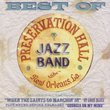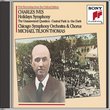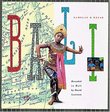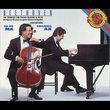| All Artists: Carl Reinecke, Edouard van Remoortel, Gerald Robbins Title: Reinecke: Piano Concertos 1 & 2 Members Wishing: 0 Total Copies: 0 Label: Genesis Records Release Date: 12/29/1993 Genre: Classical Styles: Chamber Music, Forms & Genres, Concertos, Historical Periods, Classical (c.1770-1830), Romantic (c.1820-1910), Instruments, Keyboard Number of Discs: 1 SwapaCD Credits: 1 UPC: 009414810229 |
Search - Carl Reinecke, Edouard van Remoortel, Gerald Robbins :: Reinecke: Piano Concertos 1 & 2
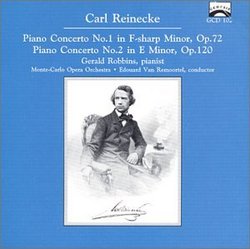 | Carl Reinecke, Edouard van Remoortel, Gerald Robbins Reinecke: Piano Concertos 1 & 2 Genre: Classical
|
Larger Image |
CD DetailsSimilarly Requested CDs
|
CD ReviewsREINECKE RUMINATIONS................... Melvyn M. Sobel | Freeport (Long Island), New York | 09/25/2001 (5 out of 5 stars) "Like so many forgottten composers of the Romantic period who wrote, flourished and were encouragingly recognized by their peers, Carl Reinecke (1824-1910), a virtual whirlwind of musical industry and activity, from composer to performer to conductor and pedagogue, has been, as well, occluded by the passing of indiscriminant time. Such a shame, really, because he wrote a wealth of music--- music of warmth, charm, sensitivity and humanity--- exactly like the two piano concertos here.
These two Reinecke concertos come from the vaults of one of my all-time favorite, intrepid little companies, Genesis Records, who, lock, stock and barrel, has singlehandedly, since the 1970s, given us one of the most valuable outpourings of neglected 19th century music available. And, now, with their repertoire being continuously, albeit slowly, transferred to CD, our beloved "lost" composers, like good old Carl, are "found" once again. The piano concertos in F Sharp Minor and E Minor are but two of four Reinecke composed and are both fetching, attractive works. Each retains a consistent level of melodic fluidity, invention and appeal, complete with all the Romantic trappings we "romantics" so dearly crave: orchestral introductions filled with portent and promise, idiomatic piano writing propelled by enchanting lyricism, enhanced by the requisite runs, scales, chordal clusters and octaves, and, of course, the constant, delicious interplay between soloist and orchestra. Indeed, it's all here, especially in the outer movements of both concertos; but it is in the contemplative middle movements--- the divine "centers" of each concerto--- where Reinecke eschews mere show in order to reach out and touch our hearts. The duo, for example, between piano and violin in the Adagio of Op. 72 is so heartfelt that it seems almost too beautiful to have ever been written! And as equally moving to hear. This is music that beggars the question: Why the neglect? It seems profoundly incomprehensible. So, too, with the Andantino of Op. 120: stunning, exquisite. For these movements, alone, Reinecke should be glowingly praised, remembered, his music resurrected. But we can only hope. Recordings like this exist to, thankfully, fill gaps and to, unhappily, remind us of potential treasures that still remain unheard. Pianist Gerald Robbins, so obviously sympathetic to Reinecke, must surely agree: his performances are models of astonishingly nuanced, sensitive, boldly-arched Romanticism at its finest. Edouard Van Remoortel and the ever-faithful Monte Carlo Opera Orchestra are every bit as attuned and enthusiastic. The sound image is warm, open, detailed, and the piano, upfront, yet intimate and vital. [Running time: 55:10]" |

 Track Listings (6) - Disc #1
Track Listings (6) - Disc #1